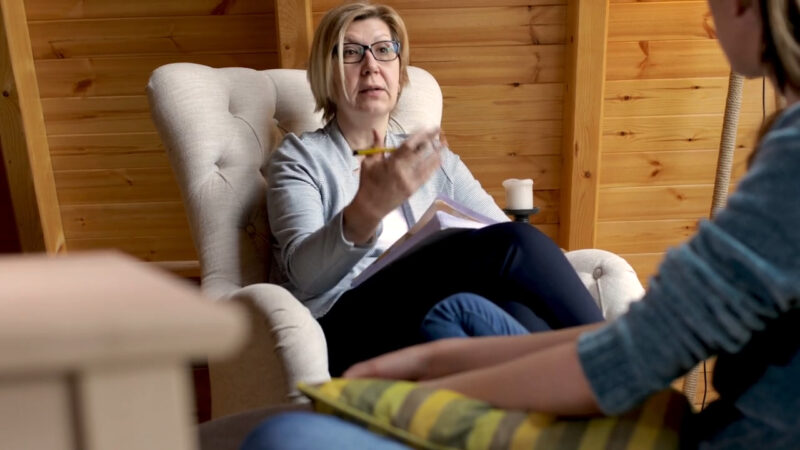Psychiatry is a branch of medicine focused on the diagnosis, treatment, and prevention of mental, emotional, and behavioral disorders. Psychiatrists are medical doctors who can prescribe medication, conduct psychotherapy, and provide a range of treatments for complex mental health issues.
Recognizing when to seek help is the first step. Signs that you might need to see a psychiatrist include persistent feelings of sadness or anxiety, dramatic changes in sleep and appetite, withdrawal from social interactions, and thoughts of self-harm. It’s important to understand that seeking help is a sign of strength, not weakness.
Key Takeaways
- Accessibility of Psychiatric Services: You can often self-refer to a psychiatrist, but a referral from a general practitioner might be required for insurance purposes. Understanding the specifics of your healthcare system is crucial.
- Managing Long Wait Times: If faced with a long wait to see a psychiatrist, consider alternative mental health professionals like psychologists or licensed therapists. Stay proactive by asking about waitlist options or cancellation lists.
- Choosing the Right Psychiatrist: Select a psychiatrist based on their specialization, treatment philosophy, location, and your comfort level with them. Personal referrals and professional reviews can be helpful.
- Preparing for the First Appointment: It’s normal to feel anxious. Prepare by gathering your medical history, documenting symptoms, outlining treatment goals, and listing any questions or concerns.
- The Importance of a Good Fit: Comfort with your psychiatrist is key. If you don’t feel a connection after a few sessions, it’s okay to look for another professional who better suits your needs.
- Collaborative Care: Psychiatrists often work in conjunction with other healthcare providers. With your consent, they can share relevant information to ensure comprehensive care.
- Embrace the Process: Remember, seeking psychiatric help is a positive step towards mental wellness. Each step, from recognizing the need for help to attending the first appointment, is significant in your mental health journey.
Initial Steps: Referral and Scheduling

The journey typically begins with a referral, often from a primary care physician, therapist, or through self-referral.
Once you have a referral, the next step is scheduling an appointment. This stage can be influenced by factors such as the psychiatrist’s availability, the urgency of the situation, and the healthcare system in your region.
In some cases, appointments can be scheduled within a few weeks, while in others, it might take several months. It’s crucial to inquire about wait times and express any concerns about urgency to the scheduling staff.
Wait Times: Factors that Influence the Duration
The wait time to see a psychiatrist can vary significantly. Factors influencing this include the psychiatrist’s specialty, geographical location, healthcare system, and the time of year. For example, wait times are typically longer in rural areas due to a shortage of mental health professionals.
Additionally, certain specialties, like child and adolescent psychiatry, may have longer wait times due to higher demand and fewer practitioners.
Preparing for Your Appointment

Preparing for a psychiatric appointment is a proactive step that can significantly enhance the effectiveness of your consultation. It involves gathering pertinent information and reflecting on your mental health journey, which helps in creating a comprehensive picture for your psychiatrist.
This preparation not only streamlines the appointment but also ensures that your concerns are addressed thoroughly. Here’s a structured approach to guide you:
- Medical History Compilation: This involves collecting any previous medical records, details of current and past medications, and information about any previous treatments. This history provides a baseline for your psychiatrist to understand your physical health and its interplay with your mental health.
- Symptom Documentation: Keeping a record of your symptoms, including their frequency, intensity, and triggers, is crucial. This helps in identifying patterns and specific issues that need to be addressed.
- Mental Health History: If applicable, include any previous mental health diagnoses or treatments. This information gives the psychiatrist insight into what has or hasn’t worked for you in the past.
- Lifestyle Overview: Sharing details about your lifestyle, such as sleep patterns, dietary habits, exercise, and stress levels, can offer valuable context for your mental health.
- Treatment Goals: Reflecting on what you hope to achieve through psychiatric treatment helps in aligning your expectations with the therapeutic process. It guides the psychiatrist in tailoring the treatment plan to your specific needs.
- Questions and Concerns: Prepare a list of questions or concerns you have about the treatment process, medications, or any other aspects of psychiatric care. This ensures that you don’t forget to address any important points during your appointment.
Here’s a table summarizing these preparation steps:
| Preparation Aspect | Details to Include |
|---|---|
| Medical History | Past and current medical conditions, medications, surgeries, allergies |
| Symptom Documentation | Description, frequency, severity, and triggers of symptoms |
| Mental Health History | Previous mental health diagnoses, treatments, therapists, or psychiatrists |
| Lifestyle Overview | Sleep patterns, diet, physical activity, stress levels |
| Treatment Goals | Specific outcomes you hope to achieve, areas of concern |
| Questions and Concerns | Any queries about treatment, medications, therapy approaches, etc. |
The Initial Consultation: What to Expect
The initial consultation with a psychiatrist is a critical step. During this meeting, which usually lasts about an hour, the psychiatrist will assess your mental health through questions about your symptoms, medical history, family history, and lifestyle.
It’s a time for both you and the psychiatrist to decide if this is the right therapeutic relationship for you. Be honest and open; the more information the psychiatrist has, the better they can help you.
Follow-Up and Ongoing Treatment

After the initial consultation, the psychiatrist will suggest a treatment plan, which may include medication, therapy, or a combination of both.
Follow-up appointments are typically shorter and focused on monitoring your progress and adjusting treatment as necessary. The frequency of these appointments will depend on your individual needs and the nature of your treatment.
FAQs
Can I see a psychiatrist without a referral from a general practitioner?
Yes, in many cases you can see a psychiatrist without a referral from a general practitioner. However, this depends on your healthcare system and insurance requirements. In some systems, a referral may be necessary for insurance coverage, while in others, you can self-refer to a psychiatrist.
What should I do if the wait time to see a psychiatrist is extremely long?
If the wait time is significantly long, consider exploring other options such as seeing a psychiatric nurse practitioner, a psychologist, or a licensed therapist in the interim. These professionals can provide support and therapy while you wait. Additionally, some psychiatric clinics offer waitlist options or cancellations, so it’s worth inquiring about these as well.
How do I choose the right psychiatrist for my needs?
Choosing the right psychiatrist involves considering factors like their specialization (e.g., child and adolescent, addiction, mood disorders), treatment approach, location, and your comfort level with them. It’s also beneficial to read reviews or seek recommendations from healthcare professionals or trusted acquaintances.
Is it normal to feel anxious about the first psychiatric appointment?
Absolutely, it’s normal to feel anxious about your first appointment. It’s a new experience where you’ll be discussing personal and sensitive topics. Many people feel nervous or apprehensive initially, but psychiatrists are trained to make you feel comfortable and help ease these anxieties.
Can I switch psychiatrists if I don’t feel comfortable after a few sessions?
Yes, it’s important to feel comfortable and understood by your psychiatrist. If, after a few sessions, you feel that the fit is not right, you can look for another psychiatrist. It’s essential for effective treatment to have a good therapeutic relationship.
Will my psychiatrist coordinate with other healthcare providers I am seeing?
Psychiatrists often coordinate care with other healthcare providers, such as your primary care physician or a therapist, to ensure a comprehensive approach to your health. However, they will need your consent to share information due to confidentiality rules. It’s beneficial to inform your psychiatrist about other healthcare providers involved in your care.
Final Words
In conclusion, the time it takes to see a psychiatrist varies widely depending on several factors. While the process can sometimes be lengthy, it’s important to remember that seeking help is a positive step towards better mental health. If you or someone you know is struggling, don’t hesitate to reach out for help. Remember, mental health is just as important as physical health, and seeking assistance is a proactive step towards a healthier, happier life.

